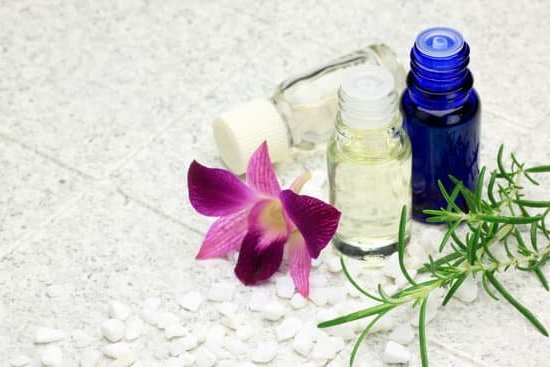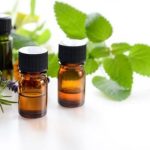Aromatherapy vapor is a popular method of promoting relaxation and overall well-being, but the question remains – is it safe for our lungs? Aromatherapy has been utilized for centuries as a natural way to enhance physical and mental health through the inhalation of essential oils.
The concept involves using aromatic compounds from plants to improve one’s mood, relieve stress, and even aid in better sleep. As the popularity of aromatherapy rises, particularly through the use of vaporizers or diffusers, concerns about its impact on lung health have emerged.
Aromatherapy, derived from the Greek words “aroma” (scent) and “therapy” (treatment), can provide numerous benefits beyond just creating a pleasant fragrance. Essential oils are carefully extracted from plants and can be inhaled or applied topically to stimulate certain responses in the body.
Inhaling aromatherapy vapor is believed to have a direct effect on emotions by activating smell receptors in the nose that send signals to the brain. Additionally, they can also have physical effects such as reducing inflammation or improving circulation.
While there are potential benefits to using aromatherapy vapor, such as stress relief and improved mood, there are also concerns surrounding its impact on lung health. Some individuals worry about inhaling essential oils directly into their respiratory system and whether it could cause irritation or other adverse effects.
In upcoming sections, we will delve deeper into these concerns and explore both scientific research and best practices to ensure that aromatherapy vapor is used safely for optimal well-being without compromising lung health.
Understanding Aromatherapy
Aromatherapy is a holistic healing treatment that uses natural plant extracts to promote health and well-being. The practice dates back thousands of years, with ancient civilizations like the Egyptians, Greeks, and Romans harnessing the power of essential oils for medicinal and spiritual purposes. Aromatherapy is commonly used today as a form of alternative medicine to enhance physical and emotional health.
Essential oils are the backbone of aromatherapy, containing the aromatic compounds extracted from plant sources like flowers, leaves, stems, bark, or roots. These potent oils can be inhaled or applied to the skin through massage or baths to evoke various therapeutic benefits. Each essential oil has unique properties that can influence mood, alleviate stress, improve sleep, relieve pain, boost immunity, and more.
The inhalation of aromatherapy vapor is a popular method for experiencing the benefits of essential oils. When these natural compounds are inhaled through steam or diffusion in the air, they can directly affect the limbic system in the brain responsible for emotions and memories.
This interaction can trigger positive responses in the body and mind, making aromatherapy vapor a powerful tool for relaxation and overall wellness. While this method is generally safe for most people when used appropriately with proper dilution levels and precautions, some may wonder if inhaling aromatherapy vapor is bad for lung health.
Benefits of Aromatherapy Vapor
Aromatherapy vapor is a popular method of using essential oils to promote relaxation, relieve stress, and enhance overall well-being. The process involves inhaling the vapors of essential oils through methods like diffusers, steam inhalation, or personal inhalers. This practice has gained significant attention for its potential benefits in improving mental and physical health. Aromatherapy has been used for centuries in various cultures for its healing properties and therapeutic effects.
Stress Relief
One of the primary benefits of aromatherapy vapor is its ability to reduce stress and anxiety levels. Inhaling certain essential oils can help calm the mind, relax the body, and promote feelings of peace and tranquility. Oils like lavender, chamomile, and bergamot are known for their stress-relieving properties and can be particularly effective when used in aromatherapy vapor. By creating a soothing atmosphere with these scents, individuals may experience a sense of relaxation and emotional balance.
Improved Mood
Another advantage of using aromatherapy vapor is its potential to uplift mood and improve emotional well-being. Essential oils such as citrus scents (like lemon or orange) or floral fragrances (such as rose or jasmine) are commonly used to boost mood and increase feelings of positivity.
Inhaling these uplifting scents through vapor can have a direct impact on one’s mood by stimulating the limbic system in the brain, which is responsible for emotions and memories. As a result, individuals may experience an improvement in mood, heightened energy levels, and enhanced overall outlook on life.
Better Sleep
Aromatherapy vapor is also believed to aid in promoting better sleep quality by creating a calming environment conducive to relaxation and restorative rest. Essential oils like lavender, valerian root, or chamomile can help induce a state of tranquility that prepares the mind and body for sleep.
Inhaling these soothing scents before bedtime through aromatherapy vapor may help individuals unwind from daily stressors, quiet racing thoughts, and ease into a peaceful slumber. By incorporating aromatherapy vapor into bedtime routines, individuals may experience improved sleep patterns, reduced insomnia symptoms, and enhanced overall sleep quality.
Concerns About Aromatherapy Vapor
Aromatherapy vapor has gained popularity in recent years for its potential benefits in promoting relaxation, reducing stress, and improving overall well-being. However, as with any alternative therapy, there are concerns about the safety of inhaling essential oils and vapor, particularly when it comes to lung health. While aromatherapy is generally considered safe when used properly, there are some factors to consider when using aromatherapy vapor.
Here are some common concerns about the safety of inhaling aromatherapy vapor for lung health:
- Quality of Essential Oils: The quality of essential oils used in aromatherapy can vary significantly. Low-quality essential oils may contain impurities or synthetic additives that could be harmful when inhaled.
- Overexposure: Inhaling too much aromatherapy vapor over an extended period of time could potentially irritate the lungs and respiratory system.
- Allergic Reactions: Some individuals may be allergic to certain essential oils, which could trigger asthma symptoms or other respiratory issues.
It is important to address these concerns by ensuring that you are using high-quality essential oils from reputable sources and practicing safe and responsible use of aromatherapy vapor. Consulting with a healthcare provider or aromatherapist before starting an aromatherapy regimen is also recommended to avoid any potential risks to lung health.
While there is ongoing research on the effects of aromatherapy vapor on lung health, it is important to approach this alternative therapy with caution and mindfulness. By being aware of potential risks and adopting best practices for using aromatherapy vapor, you can enjoy the benefits of this practice while minimizing any negative impact on your lungs.
Research on Aromatherapy Vapor
Aromatherapy has gained significant popularity in recent years, with many individuals turning to essential oils and vapor for relaxation and overall well-being. However, there is a growing concern about the impact of inhaling aromatherapy vapor on lung health. Many people wonder: is aromatherapy vapor bad for lungs? To address this question, it is essential to examine the existing research and scientific evidence on the effects of aromatherapy vapor on lung health.
Studies on Aromatherapy Vapor and Lung Health
Several studies have investigated the potential impact of inhaling essential oils through aromatherapy vapor on lung health. One study published in the Journal of Toxicological Sciences found that exposure to certain essential oils, such as eucalyptus and peppermint, could lead to inflammation in the respiratory tract. Another study published in the International Journal of Environmental Research and Public Health examined the effects of diffusing essential oils in indoor environments and found that prolonged exposure could irritate the airways.
Effects of Aromatherapy Vapor on Respiratory Conditions
While some research suggests that inhaling aromatherapy vapor may have negative effects on lung health, other studies have shown potential benefits for individuals with respiratory conditions. For example, a study published in Evidence-Based Complementary and Alternative Medicine found that inhaling lavender essential oil through aromatherapy vapor helped improve symptoms of bronchial asthma. It is important to note that more research is needed to fully understand the impact of aromatherapy vapor on different respiratory conditions.
Recommendations for Safe Use
To minimize any potential risks associated with inhaling aromatherapy vapor, it is crucial to follow best practices for safe use. It is recommended to dilute essential oils before using them in a diffuser or humidifier to reduce the concentration of vapors released into the air.
Additionally, limiting the duration and frequency of exposure to aromatherapy vapor can help protect lung health. Consulting with a healthcare professional before starting any aromatherapy regimen is also advisable, especially for individuals with preexisting respiratory conditions.
Best Practices for Aromatherapy Vapor
Aromatherapy vapor is a popular method for harnessing the benefits of essential oils and promoting relaxation and wellness. However, it is essential to use caution when inhaling these vapors to ensure that they do not have any negative effects on lung health. To enjoy the benefits of aromatherapy vapor safely, there are several best practices that individuals can follow.
First and foremost, it is crucial to dilute essential oils properly before using them in a diffuser or inhaler. Undiluted essential oils can be too potent and may cause irritation when inhaled. Mixing essentials oils with a carrier oil like coconut or almond oil can help reduce the risk of any adverse reactions.
Another important tip for safe use of aromatherapy vapor is to avoid prolonged exposure to the vapors. It is recommended to limit aromatherapy sessions to around 30 minutes at a time to prevent overexposure. Taking breaks between sessions can also give the lungs time to recover and minimize any potential strain on respiratory health.
Additionally, choosing high-quality essential oils from reputable sources is key to ensuring the safety of aromatherapy vapor. Low-quality oils may contain impurities or additives that could be harmful when inhaled. Opting for organic and pure essential oils can help minimize any risks associated with inhaling aromatherapy vapor. By following these best practices, individuals can enjoy the benefits of aromatherapy vapor while promoting lung health and overall well-being.
Alternative Options
Aromatherapy vapor is a popular way to enjoy the benefits of essential oils, but some individuals may have concerns about the potential effects on lung health. While inhaling essential oil vapor can be beneficial for many people, there are alternative methods of practicing aromatherapy that may be gentler on the lungs. Here are some alternative options to consider:
- Diffuser: Using an essential oil diffuser is a great way to enjoy the benefits of aromatherapy without directly inhaling the vapor. Diffusers disperse essential oils into the air as a fine mist, allowing you to experience the therapeutic effects through inhalation. This method is particularly beneficial for those who may have respiratory issues or sensitivities to inhaling vapor directly.
- Topical Application: Another alternative method of aromatherapy is through topical application. By diluting essential oils with a carrier oil, such as jojoba or coconut oil, you can apply them directly to your skin. This allows the oils to be absorbed through the skin and enter the bloodstream, providing similar benefits to inhaling vapor without any potential risks to lung health.
While traditional aromatherapy vapor can be a wonderful way to experience the benefits of essential oils, it is important to listen to your body and choose methods that work best for your individual needs. Exploring alternative options like using a diffuser or topical application can provide a gentle and effective way to incorporate aromatherapy into your wellness routine without any concerns about potential harm to the lungs.
Remember, it’s always best to consult with a healthcare provider before trying any new wellness practices, especially if you have pre-existing respiratory conditions.
Conclusion
In conclusion, aromatherapy vapor can be a beneficial tool for promoting relaxation, stress relief, and overall well-being. While inhaling essential oils through vaporizers or diffusers is a popular method of enjoying the benefits of aromatherapy, concerns about its impact on lung health have been raised. It is essential to consider the quality of essential oils used, as well as the frequency and duration of exposure to vaporized oils.
Recent research has provided some insights into the effects of aromatherapy vapor on lung health. While some studies suggest that inhaling essential oils may have respiratory benefits, others raise concerns about potential risks such as inflammation or irritation. It is crucial for individuals considering aromatherapy vapor to approach it with caution and be mindful of any adverse reactions they may experience.
In summary, while aromatherapy vapor can offer a variety of benefits for overall wellness, including stress relief and improved mood, it is important to use it responsibly. Seeking guidance from a healthcare professional or aromatherapist can help ensure safe and effective use of essential oils for aromatherapy purposes. Ultimately, whether aromatherapy vapor is bad for lung health depends on individual factors such as sensitivity to specific oils and proper usage practices.
Frequently Asked Questions
Is Aromatherapy Safe for Lungs?
Aromatherapy can be safe for lungs when used properly. Some essential oils can irritate the respiratory system or trigger asthma attacks in some individuals. It is important to consult with a healthcare professional before using aromatherapy if you have any underlying lung conditions.
Are Aromatherapy Vapes Harmful?
Aromatherapy vapes, also known as diffusers, are generally considered safe when used as directed with recommended essential oils. However, inhaling large amounts of essential oils through vaping can cause respiratory issues or allergic reactions in some people. It’s crucial to follow instructions and use them in moderation.
What Are the Effects of Aromatherapy Inhalation?
The effects of aromatherapy inhalation can vary depending on the essential oils used. For example, lavender and chamomile can promote relaxation and reduce stress, while peppermint and eucalyptus may help clear congestion and improve breathing. Aromatherapy inhalation has been shown to have positive effects on mood, stress levels, and overall well-being when used appropriately.

Are you looking for a natural way to improve your health and wellbeing?
If so, aromatherapy may be the answer for you.





